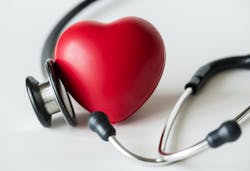Heart disease is the leading cause of death worldwide, killing someone in the United States every 34 seconds, according to the Centers for Disease Control and Prevention. A new study by investigators from Brigham and Women’s Hospital, a founding member of the Mass General Brigham healthcare system, conducted the first population-based study on patients’ nonacceptance of statin therapy recommendations.
The study found that in patients at high risk of developing cardiovascular disease, over 20 percent refused to take statin medications. They were particularly surprised to see that women were about 20 percent more likely than men to refuse statin therapy when it was first suggested by their physician, and 50 percent more likely than men to never accept the recommendation. The study also showed that all patients who refused statin therapy developed higher LDL (“bad”) cholesterol levels, likely increasing their risk even further. The results are published in JAMA Network Open.
The study focused on high-risk patients who either had coronary artery or vascular disease, diabetes, very high cholesterol, or had suffered a stroke. All were recommended statin medications by their physicians to reduce their risk of heart attack and stroke and reduce cholesterol levels. The retrospective study included more than 24,000 patients who were seen at Mass General Brigham between Jan. 1, 2000, and Dec. 31, 2018.
The study found that while about two-thirds of the patients who were being recommended statin therapy eventually tried it, about one-third never did. And it took three times as long for people in the study who initially said no to taking statin medications to reduce their LDL cholesterol levels to less than 100, compared to people who initially said yes.
The study’s biggest surprise, however, was the much higher rate of refusal by women than men.

